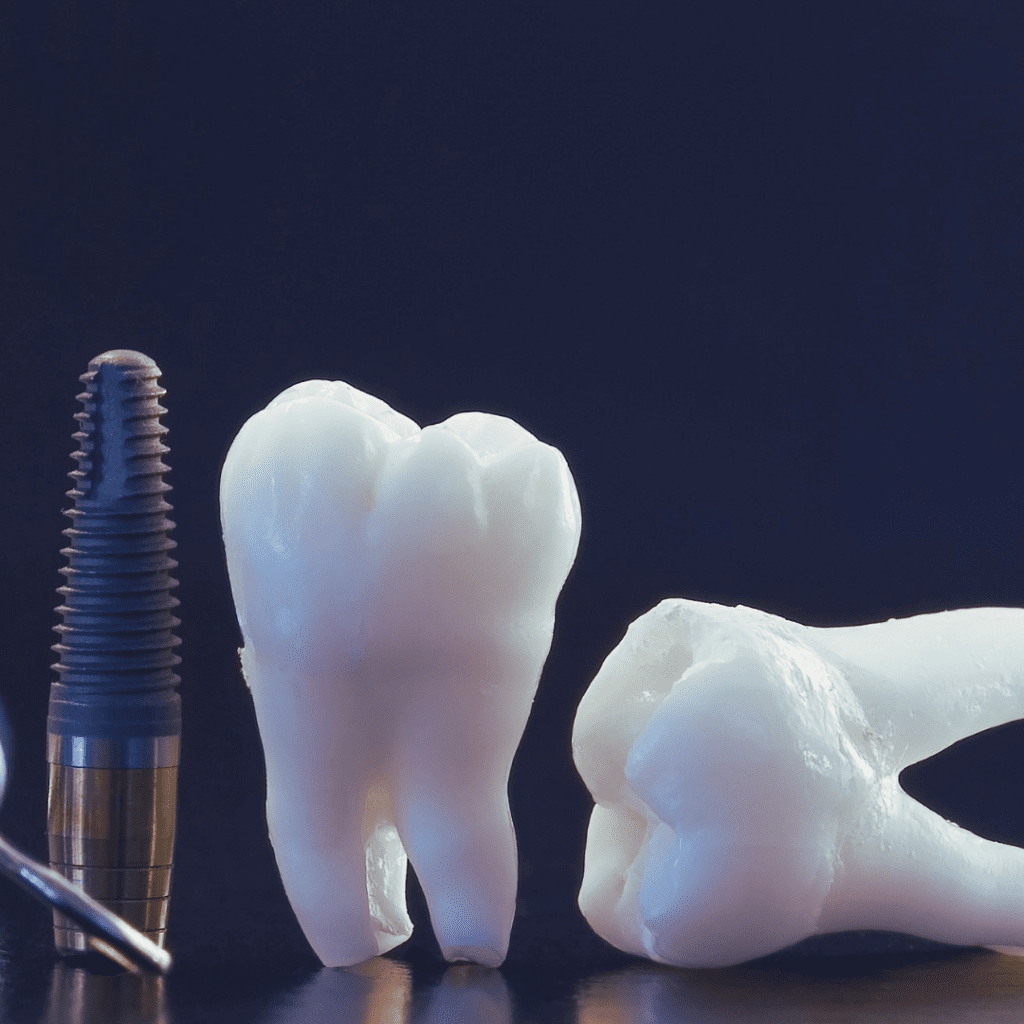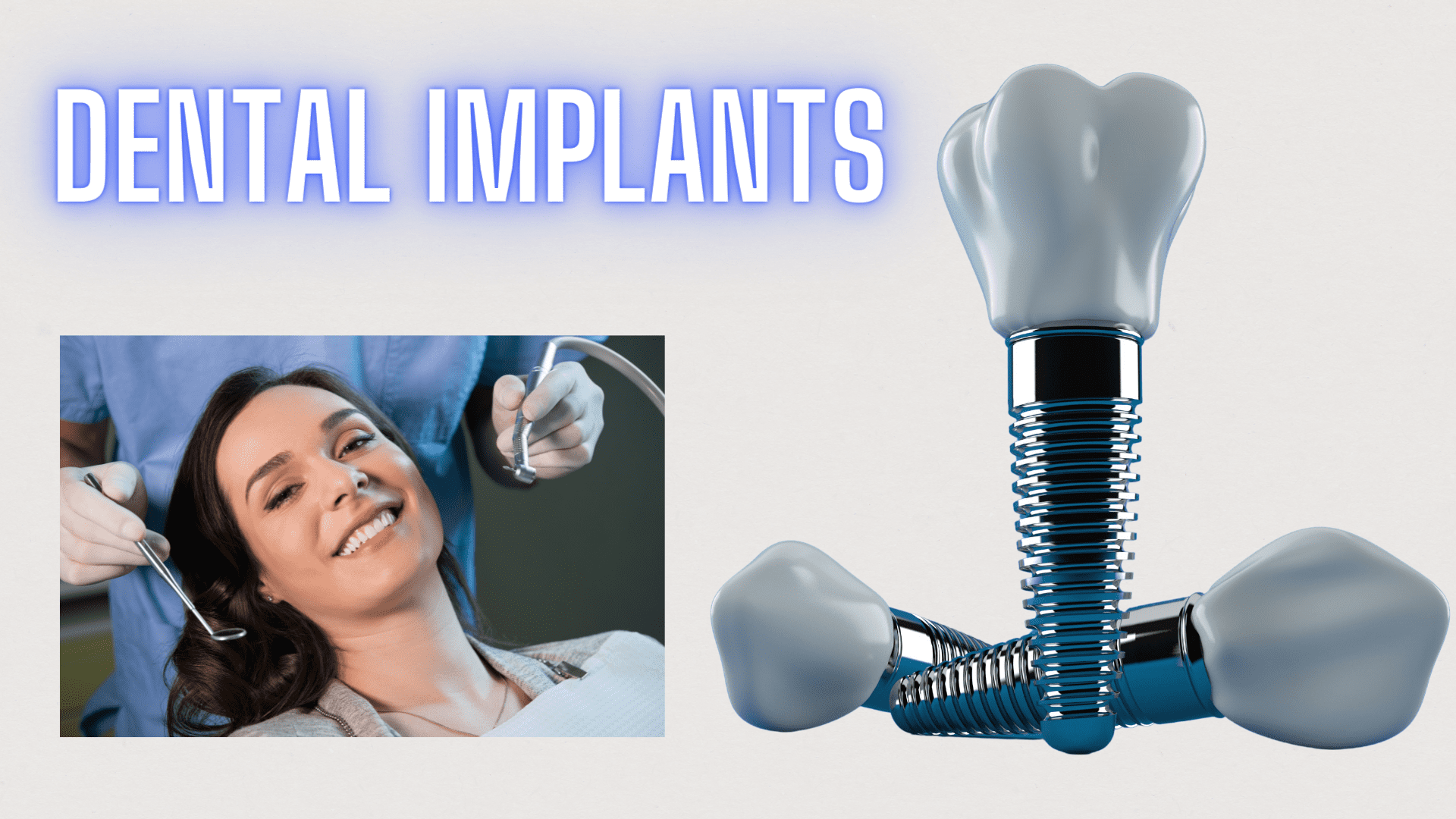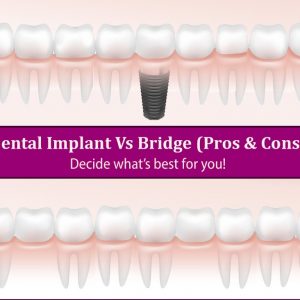People who have lost teeth usually shy away from smiling or speaking boldly. Such people face challenges in chewing food, which can lead to secondary health issues.
In that case, Dental Implants are a full-mouth repair option for those who have lost teeth.
Dental Implants replace missing tooth roots, giving individuals the strength and stability they need to consume all of their favourite meals without struggling to chew.
Today, let us learn about the nitty-gritty of Dental Implants.
Keep Reading!
Definition: Dental Implants
A Dental Implant is an artificial tooth that is used to replace a missing tooth. The surgeon installs a screw-like device into the jawbone, which is nothing but an anchor for an artificial tooth called a crown.
The artificial tooth is linked to the Dental Implant by a device called Abutment.
The crown is created to suit the patient’s mouth and match their teeth’ colour. Crowns provide a similar appearance, feel, and function as natural teeth.

1. What are the types of Dental Implants?
Endosteal (Endosseous) Implants: The most frequent form of dental implant is endosteal. They are occasionally used instead of a bridge or removable denture. Screw (threaded), cylinder (smooth), and bladed endosteal implants are available. Your Prosthodontist can help you decide which type of dental implant is best for you, although endosteal implants are the most common and safe option today.
Subperiosteal Implants: Today, subperiosteal implants are rarely utilised. They were formerly primarily used to secure dentures in individuals who lacked sufficient bone height. Subperiosteal implants are inserted beneath the gum tissue on the jawbone, with the metal implant post visible through the gums to hold the denture.

Note: The first step in placing an endosteal implant is screwing it into the jawbone, which needs adequate jawbone health and density. If your jawbone ridge is inherently narrow, or if it is short, constricted, and worn down due to trauma or illness, you may not have enough bone to sustain an endosteal implant. A subperiosteal implant may be a possibility in this instance.
2. Are Dental Implants a good investment?
Dental Implants that are correctly fitted are expected to last a lifetime, but there is no getting around the fact that they are pretty expensive. Patients who are looking for a long-term replacement for a lost or removed tooth may find this impractical. However, the GOOD NEWS is that a well-placed Dental Implant can last up to 20 years if properly cared for at home.

Let us look at some of the pros of Dental Implants:
Full Chewing Power:
One of the most significant benefits of a dental implant is that it restores full chewing ability. The majority of patients are unable to distinguish between their natural teeth and the implant tooth. They can eat regularly with it, and they can even brush and floss normally with it.
Less Amount Of Cavities:
Unlike natural teeth, dental implants do not deteriorate. This is not to say that it should not be cared for with an excellent oral hygiene regimen, but knowing that the odds of a cavity growing through the implant are minimal can be reassuring.
Prevents Teeth Loss:
One of the most top benefits of a Dental Implant is that it restores full chewing ability. The majority of patients are unable to distinguish between their natural teeth and the implant tooth. They can eat regularly with it and can even brush and floss normally as well.
Maintain Teeth Stability:
A lost tooth can cause surrounding teeth to shift crookedly in the direction of the gap. This causes your teeth to shift out of place, affecting your bite, chewing abilities, and look. It may cause interference, making tooth replacement more difficult in the future.
Prevents Facial Sagging & Premature Aging:
Facial drooping is a common side effect of bone loss caused by missing teeth. Usually, the lower half of the face begins to collapse, reducing the space between the tip of the nose and the chin. Excess wrinkles around the mouth, thinner lips, and a more pointed chin can make a person appear much older than their actual age. Because it is placed in the jawbone, a Dental Implant can decrease these risks by maintaining bone stimulation.

What is the cost of getting a Dental Implant?
The cost of Dental Implant Surgery varies, depending on the following factors:
- Number & Types Of Dental Implants
- Placement Of The Dental Implants
- Further Treatments
Dental implant restorations nowadays are nearly indistinguishable from natural teeth. This is partly due to the implant’s structural and functional link with the live bone and contemporary technology that ensures the teeth are precisely aligned. Depending on your specific circumstances, your Dental Implant Specialist, or Prosthodontist, can assist you in determining which choice is ideal for you.
If you are seeking a Dental service near Arana Hills, visit My Gentle Dentist. Every time you visit our Clinics, our skilled and professional Dental Team will be committed to creating a comfortable, stress-free, and enjoyable dental experience.
Hurry up, get your appointment scheduled for Dental Implants at My Gentle Dentist, and regain full function of your mouth.




